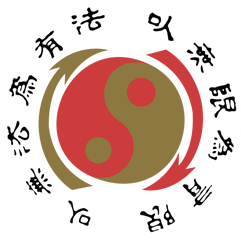Visit to the Krishnamurti Foundation of America
by Andrew Kimura

In early July of this year, Jun Fan Jeet Kune Do Nucleus member John Little and I went to Ojai, California to visit the Krishnamurti Foundation of America. We went on behalf of Jun Fan Jeet Kune Do and since we, the Jun Fan Jeet Kune Do Nucleus, are still a relatively young organization, we hoped to come to understand more about successfully operating a non-profit organization.
We met with R.E. Mark Lee, the Executive Director of the Krishnamurti Foundation of America, and his wife Asha (both of whom knew Krishnamurti for a period extending over two decades), with whom we had an interesting and enlightening meeting. We stayed at the Krishnamurti Institute, a retreat and reading center, which sits adjacent to the Foundation grounds.
The next day we met with Mark again, and he took us on a short tour of the 120-acre compound. We conversed with Mark about fund raising alternatives (at present our primary source of fundraising has been our annual seminar and banquet, in addition to our membership revenue). We visited the Krishnamurti Archives and the vault where all Krishnamurti’s original works reside including personal papers, essays, journals, video and audio recordings, etc. While there, we were informed as to optimum archiving and storage procedures such as temperature, materials, etc., which we hope to now apply to archiving Bruce Lee’s original writings and recordings.
As most readers of this magazine are probably aware, Krishnamurti’s teachings had a profound impact on Bruce Lee’s way of thinking, and Bruce was able to apply much of what Krishnamurti stressed regarding spiritual matters to the development of his art of Jeet Kune Do.

This being so, I was curious as to how the Krishnamurti Foundation was, in fact, founded, given that it was presumably guided by the teachings of a man who claimed not to be a teacher. I was also particularly interested in how the Krishnamurti Foundation was able to preserve and perpetuate the teachings of Krishnamurti without crystallizing them, or turning them into dogma. After all, Bruce himself closed all of his schools for fear that the students would mistake his program as the “Way” and the agenda as the “Truth.” To this day my father, Taky Kimura, continues to operate the Jun Fan Gung Fu Institute in Seattle as a private club not a school – simply passing on Bruce’s teachings in the same spirit of brotherhood as they were first shared with him.
Concerning the Jun Fan Jeet Kune Do Nucleus, our on-going endeavor has been to walk the tight rope between doing the very thing Bruce asked us not to do (namely “make a fuss” and say that Jeet Kune Do is different from this or that) on the one side, while still preserving the integrity of Bruce’s teachings so that he may receive the appropriate recognition for the great contribution he has made to mankind. Bruce did not want Jeet Kune Do to be called an art, but unfortunately he is not with us and there is a core curriculum that needs to be preserved for future generations.

There is much to be said for the attainment of a goal, achieving the end result, but what about the process? It is plain to see the level Bruce attained when, for example, one watches his films. However the process, the journey, is what is interesting and unique to each human being. How did Bruce get there? How did he attain such a great level of mastery? This is what most people want to know. By using Bruce’s example of progression as a guide – not a mold – for our own experiences, we, too, can find ourselves. Both Bruce Lee™ and Krishnamurti believed that there are no paths to truth but th we make for ourselves. Truth cannot be attained by following anyone else’s way; you cannot understand it by anyone else’s pattern of thinking. Truth is the ultimate goal for each of us, no matter what area of life we choose to address. Let Bruce’s teachings be what he intended them to be: “a finger pointing to the moon,” illuminating our paths toward liberation. In the spirit of Bruce and Krishnamurti, don’t accept anything as truth until you discover truth for yourself.
